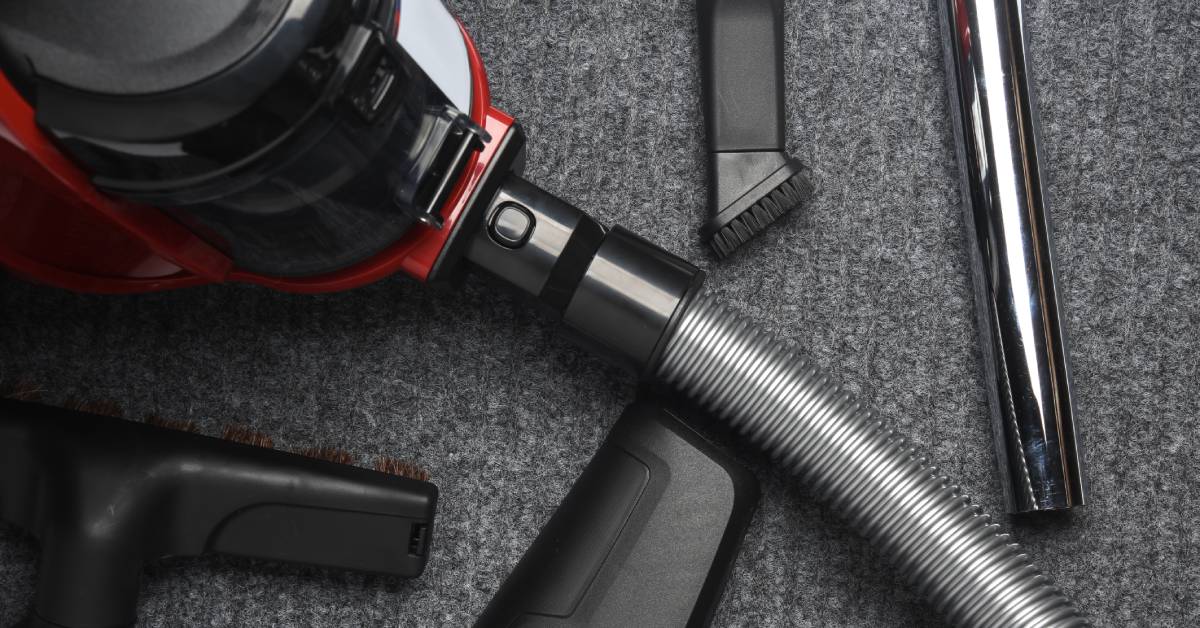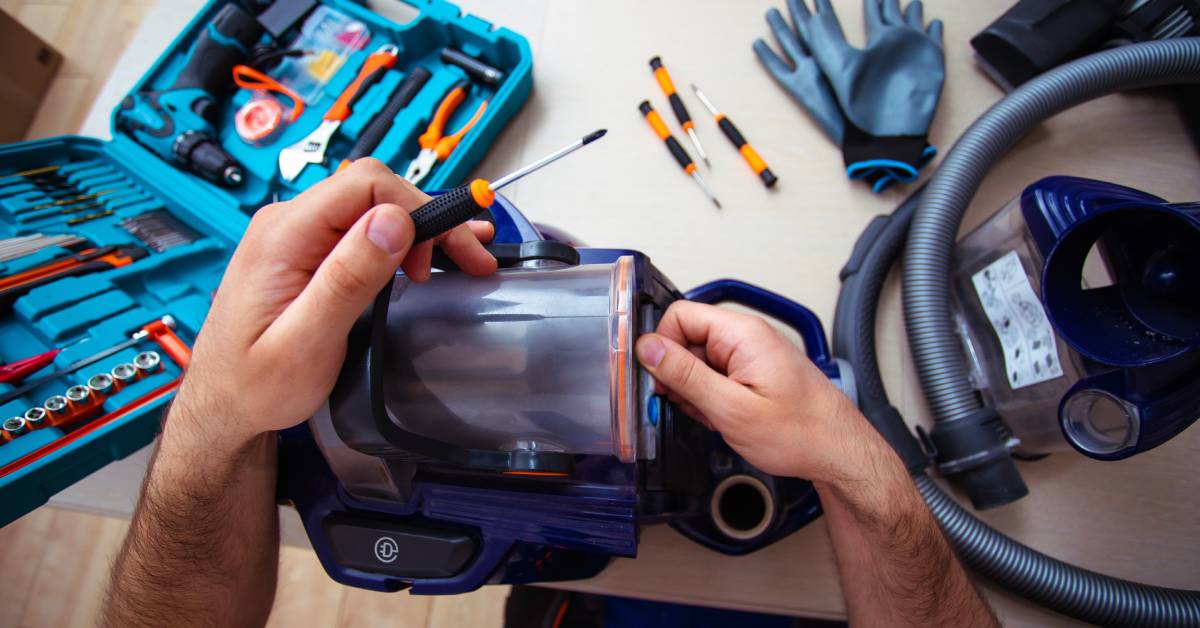8 Care Tips for Your Industrial Vacuum Cleaner
11th Jul 2024
Maintaining an industrial vacuum cleaner is essential for its efficiency and longevity. These powerful machines are indispensable in keeping large facilities clean and safe, so they require regular upkeep to perform at their best. Look at our care tips to maintain your industrial vacuum cleaner today!
Understanding Your Industrial Vacuum Cleaner
Before diving into maintenance tips, we’ll explain the different types of industrial vacuums and their key components. This knowledge will help you identify maintenance needs specific to your machine.
Wet/Dry Vacuum Cleaners
These versatile machines can handle liquid spills and dry debris, making them ideal for various industrial environments. They are popular in facilities where frequent spills and quick clean-ups are necessary.
HEPA Filter Vacuum Cleaners
High-efficiency particulate air (HEPA) filter vacuum cleaners capture tiny particles, including allergens and dust. They are essential in environments where good air quality is a priority, such as healthcare facilities and cleanrooms.
Backpack Vacuum Cleaners
You wear portable vacuums on your back, enhancing mobility and ease of use in tight spaces or large areas. They are common in commercial settings, offices, and stairwells.
Upright Vacuum Cleaners
Upright models, or traditional vacuum cleaners, are easy to maneuver and highly effective on carpets and hard floors. They are ideal for routine cleaning tasks in various industrial settings.
Key Components of Industrial Vacuum Cleaners
Understanding the key components of your industrial vacuum cleaner is crucial for maintenance. The motor is the heart of the machine, providing the necessary suction for effective cleaning.
Filters trap dust, dirt, and other particles, preventing their release back into the air. Different types of filters, including pre-filters and HEPA filters, have specific functions. Hoses and attachments extend the vacuum’s reach and versatility. However, they are prone to blockages and damage, so regular inspection and cleaning are necessary.
Lastly, the collection tank or bag stores debris. Emptying them regularly is vital for maintaining suction power and preventing clogs.

Daily Maintenance Tips
Daily maintenance tasks are quick and simple but go a long way in keeping your industrial vacuum cleaner in optimal condition.
Checking and Emptying the Collection Bag or Tank
Emptying the collection bag or tank after each use can prevent clogs and boost suction power. Here’s a step-by-step guide on doing this safely:
- Turn off and unplug the vacuum cleaner.
- Remove the collection bag or tank according to the manufacturer’s instructions.
- Toss out debris in a waste container.
- If using a reusable bag, clean it thoroughly before reattaching.
- Reattach the bag or tank before using the vacuum again.
Inspecting and Cleaning the Filters
Filters trap dust and allergens, and the different types have various maintenance needs. Pre-filters capture large particles and protect the main filter, while HEPA filters trap tiny particles for good air quality.
You should check and clean pre-filters daily. HEPA filters typically require less frequent maintenance, depending on usage. Use a soft brush or compressed air to clean reusable filters, and replace disposable filters as needed.
Inspecting Hoses and Attachments
Hoses and attachments help you reach otherwise inaccessible areas during cleaning, so regular inspection ensures they remain free of blockages and damage. To check for obstructions or wear and tear, detach the hoses and attachments from the vacuum cleaner and inspect them closely.
Use a flexible brush or compressed air to clear any blockages you find. Wash the removable parts with warm and soapy water. Then, thoroughly rinse them and let them dry before reattaching. Consistent cleaning ensures your vacuum performs at its best.
Weekly and Monthly Maintenance Advice
Weekly and monthly maintenance tasks are more comprehensive than daily tasks and help you ensure all components of the vacuum cleaner remain in top condition.
Checking the Motor and Moving Parts
The motor and moving parts are essential for the vacuum’s functionality; regular checks can help you prevent wear and tear from escalating. Unusual noises or reduced suction power may indicate motor problems, while visible signs of wear or damage on belts and other moving parts require immediate attention.
To keep everything operating smoothly, consult the manufacturer’s guidelines for lubrication points and use appropriate lubricants. Regularly inspecting these components ensures your industrial vacuum cleaner remains efficient and prolongs its lifespan.
Deep Cleaning the Vacuum
A thorough cleaning of the vacuum ensures it stays in optimal condition and extends its lifespan. Follow these detailed instructions for a thorough cleaning:
- Turn off and unplug the vacuum.
- Dismantle removable parts, including hoses, filters, and attachments.
- Clean each part with appropriate cleaning solutions.
- Use a damp cloth to wipe down the exterior and hard-to-reach areas.
- Reassemble everything once all parts are dry.
Regularly Testing Suction Power
Testing suction efficiency helps you identify issues before they worsen. Use a suction gauge to measure the vacuum’s performance and compare the readings to the manufacturer’s specifications. Check for blockages or full collection bags if you notice low suction power. Additionally, inspect filters and clean or replace them as needed.
Annual Professional Servicing
While regular maintenance keeps your vacuum running smoothly, annual professional servicing can enhance its performance, especially for operations with multiple industrial vacuums.
Although not mandatory, a professional can inspect the device and identify potential issues, extending the life of your vacuum cleaner. During professional maintenance, expect comprehensive cleaning of all components, replacement of worn parts, and motor testing and lubrication.

Best Practices for Prolonging Your Vacuum’s Lifespan
Implementing best practices, like using the right accessories and attachments, ensures your industrial vacuum remains efficient and durable. Matching accessories to cleaning tasks improves cleaning efficiency and prevents damage. Always use the appropriate attachment for each task, and follow the manufacturer’s recommendations to maximize performance.
Properly storing your equipment is another care tip for your industrial vacuum cleaner. Store it in a cool, dry place away from direct sunlight to prevent damage. Also, neatly coil hoses and cords without placing them under tension to avoid wear and tear.
Training employees on proper use and care is essential to ensure everyone handles the vacuum cleaner correctly and encourages consistent maintenance practices.
Final Thoughts
Implementing these care tips can ensure the efficiency and longevity of your industrial vacuum. For more expert advice and access to high-quality products, explore our website! As a trusted commercial cleaning supply store, Cleaning Stuff offers an extensive range of solutions to meet your cleaning needs.

